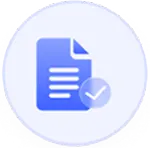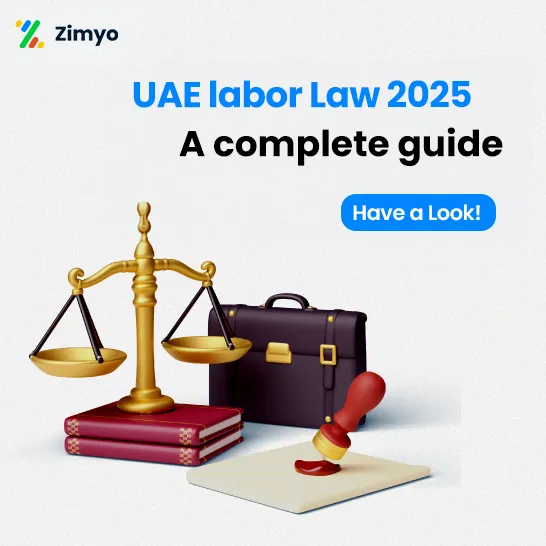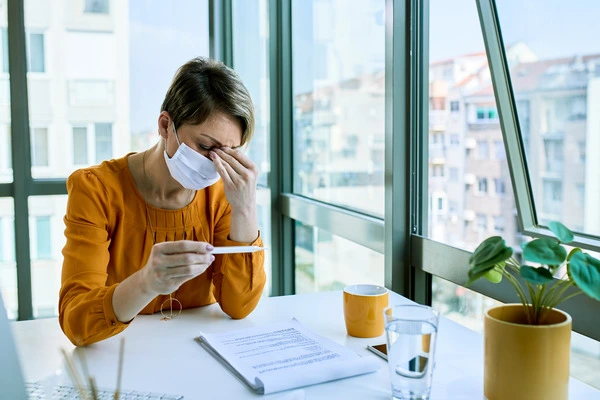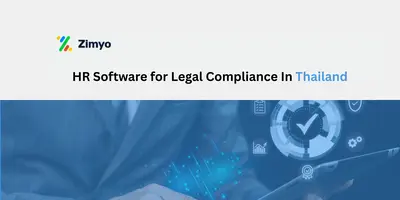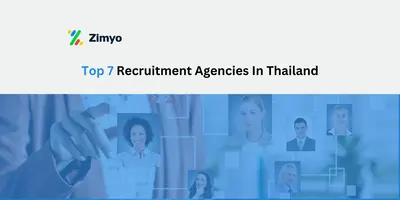Sick leave in Singapore is an important part that contributes towards healthy and sustainable workplace culture. As an employer, either in an SME or MNC, the employers should focus on the wellness of the employee without crossing any legal limits. Simultaneously, employees need to be informed of their rights so that there is no misunderstanding and so that they get reasonable treatment whenever they are sick. This guide provides a detailed covering of sick leaves in Singapore including the law and entitlement, MC requirements, pro-rating practices, part-time employment, documentation, long term leaves and other aspects.
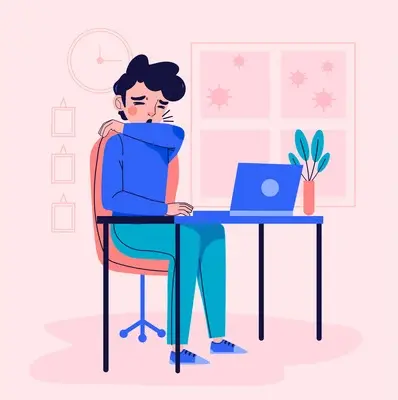
Eligibility to Sick Leave in Singapore
In Singapore, workers must meet requirements prior to having a sick allowance. These regulations give fairness and uniformity in every industry.
- Complete 3 Months of Continuous Service
Before receiving paid sick leave in Singapore, employees must complete three months of continuous employment. This rule applies regardless of the industry or company size.
- Work Under a Valid Contract of Service
Employees must be a formal employee under a contract of service. The agreement may be written, or verbal. Contract-for-service professionals or freelancers do not qualify.
- Obtain and Submit a Valid Medical Certificate (MC)
Employees must submit the MC to the employer as soon as possible. The document must clearly mention the duration of leave, diagnosis (where appropriate), and the doctor’s signature.
- Including Foreign Workers and Part-Time Employees
Employers must also extend sick leave entitlements to eligible S Pass and Work Permit holders. As long as they meet the 3-month service requirement and submit valid MCs, they will receive the same benefits.
Sick Leave Entitlement in Singapore
The Employment Act helps Singapore to make sick leave advice in detail to ensure that it ensures the wellbeing of employees and consider the possible effects to guide the companies.
- Outpatient Sick Leave (Up to 14 days per year)
Employees have upto 14 days of paid outpatient sick leave on an annual basis. They include leave in cases of mild illnesses such as flu, fever and/or symptoms of stress, which do not need hospitalization.
- Hospitalisation leave (Up to 60 days a year)
The employees have a right to have 60 days of hospitalisation during any year of service with an addition of 14 days of outpatient work. Hospitalisation could comprise surgery, in-patient treatment, or healing by a physician.
- Pro, Rated Sick Leave to New Joiners
Sick leaves are to be pro-rated by employers in the case of employees whose service period exceeds 3 months but fewer than a year. A good case in point, an employee who serves 6 months has approximately 7 days of outpatient leave.
- No Entitlement Before 3 Months of Service
Employees in their first three months of service do not receive paid sick leave. However, some progressive companies may offer goodwill leave during this period.
- Sick Leave Must Not Be Unreasonably Withheld
Employers must not deny paid sick leave in Singapore when an employee meets all criteria. Doing so may result in legal action or enforcement by the Ministry of Manpower (MOM).
Medical Certificate & Documentation Rules
Proper documentation ensures that sick leave in Singapore is fairly applicable and legally compliant. Employers must stay consistent, while employees must follow formal processes when submitting medical certificates (MCs).
- Accept registered MC (s) Only
Employers are only acceptable to use the MC which doctors provide, or by dentists registered in Singapore. These may be general practitioners (GPs), hospital physicians, specialists or TCM practitioners registered by the Traditional Chinese Medicine Practitioners Board.
- Make sure that the MC contains necessary information
Duly signed valid MCs should reflect the full name of the employee, issue date, period of leave, the name of the clinic/hospital as well as signature of the doctor. Any MC that is unclear or has not been completely filled should be made clear at the same time.
- Acceptance of Electronic Submissions (e-MCs)
Lots of employers are open to digital MCs sent through e-mail or by use of HR websites or their mobile app. These are to be signed or authenticated well with data security and legal soundness.
- Avoid Delay in Submission
Employees should submit their MCs promptly—ideally within the same day or the next working day. Delay of submissions may risk denial unless justification is given.
- Keep Records for Audit Readiness
Companies must store MCs and related leave records for at least two years. This helps during audits or MOM investigations and prevents legal liabilities.
Payment Guidelines for Sick Leave
Timely and full payment during sick leave in Singapore demonstrates fairness and enhances trust. The law ensures that employees do not lose income when they are genuinely unwell.
- Pay Full Basic Salary for Eligible Sick Leave
Employers must pay the full basic salary for all certified sick leave in Singapore. This applies to both outpatient and hospitalisation leave, as long as the employee meets eligibility criteria.
- Include Fixed Allowances if Specified in Contract
If contracts mention fixed allowances—like transport or meal subsidies—employers must also pay these during the approved sick leave period. Variable components may not apply unless stated.
- Following Regular Payroll Cycle
Sick leave wages must be processed during the usual salary cycle. Employers must not delay or hold back payment unless there is a valid dispute.
- Deduct Only for Unauthorised Leave
Employers may deduct pay only if the employee fails to submit an MC, takes leave without approval, or exceeds the leave entitlement. All deductions must follow written policies.
- Avoid Disciplinary Action for Genuine Absences
Employers must never penalize employees for taking certified sick leave. Any disciplinary action taken due to valid MC-based leave may be viewed as unfair under MOM guidelines.
Sick Leave for Part-Time & Shift Workers
All employees—regardless of work hours—deserve fair treatment when sick. Part-time and shift workers must receive sick leave in Singapore in proportion to their work schedules.
- Pro-Rated Sick Leave for Part Time employees
Employers have to determine sick leave as per the number of working hours their employees have on a weekly basis, relative to a full-time employee. In our case, an example helped in that a part-time worker whose weekly schedule is 20 hours/week might take up only half the full entitlement.
- Apply Leave Only to Scheduled Work Days
Part-time and shift workers can take sick leave only on days they are scheduled to work. If their MC covers non-working days, those are not counted against their leave balance.
- Provide Equal MC Submission Requirements
Part-time staff must follow the same rules as full-timers. They must consult registered doctors and submit valid MCs within the stipulated time frame.
- Be Open to Policy Transmission
The sick leave policy should be explained clearly by employers in contracts or employee books. This will make the part-time and shift workers aware of their rights.
- Medical Leave Policies Abuse Should be Avoided
Patterns should also be tracked to discourage misuse and everyone in the company should be informed how to use them. They should, however, not be biased or make assumptions when addressing frequent leave.

Related Laws That Affect Sick Leave in Singapore
Sick leave in Singapore is not in vacuum. Some associated labour laws and systems contribute to additional protection for employees. This legislation influences the manner in which employers deal with extended sickness, industrial accidents, and needy groups.
- Work Injury Compensation Act (WICA)
It provides employees with compensation and medical leave when they become sick or injured as a result of all of their work. Employers must pay medical expenses and hospitalization leave.
- Workplace Safety and Health Act (WSHA)
This law ensures that companies reduce risks and act on patterns of sick leave. If a trend shows frequent medical issues in a department, WSHA compels investigation and intervention.
- Child Development Co-Savings Act (CDCA)
This Act protects parents. If children are unwell, employees may apply for child medical leave. Employers must not penalize such leave if proper documentation is submitted.
- Employment of Foreign Manpower Act (EFMA)
Employers who hire foreign workers must fully cover their medical care and sick leave entitlements under the EFMA. It is illegal to deduct these costs from wages.
- Tripartite Guidelines on Fair Employment
Employers must apply sick leave policies fairly to all employees—regardless of race, age, gender, or work pass type. Biased practices may result in legal action.
Handling Long-Term and Chronic Illness Leave
Sick leave in Singapore also includes guidance for recurring or prolonged illness. Chronic health problems or mental health conditions must be handled with empathy and planning.
- Respect Medical Confidentiality
Employers must handle long-term health conditions with discretion. They should not force public disclosure unless necessary for workplace safety or operations.
- Plan Gradual Return to Work
HR can develop phased-in returns when employees are willing to go back to work. These are shortened hours, hybrid work, or light-duty work.
- Track Patterns with Care
If medical leave becomes frequent, HR should meet with the employee to discuss support—not punish them. Employers may request re-assessment but not deny valid MCs.
- Avoid Discrimination
No one should face dismissal or demotion due to chronic health issues. If performance suffers, it must be documented neutrally and managed supportively.
- Engage MOM for Complex Situations
When in doubt, MOM offers advisory support for long-term leave or mental health cases. Employers should act lawfully and consult early.
Using HR Tech to Track Sick Leave in Singapore
Technology allows HR teams to manage sick leave in Singapore efficiently. Automation removes guesswork and helps maintain compliance.
- Automate Leave Entitlement & Balance
HR software auto-calculates sick leave based on employee start dates and hours worked. It removes manual errors and increases accuracy.
- Accept Digital MCs Seamlessly
Many clinics now issue e-MCs. Employers should set up secure portals where employees can upload MCs in real-time.
- Set Notifications and Alerts
HR tools can flag when employees reach their sick leave quota or when a pattern emerges. Early alerts help prevent abuse or overwork.
- Link Payroll for Accurate Payment
Time and attendance systems connect to payroll. This ensures employees are paid accurately and on time for sick leave.
- Offer Self-Service Options
Using portals in the cloud, employees can access balances, MC submissions and leave history, thus taking the load off HR.
Zimyo with its advanced Time & Attendance Software allows HR departments to streamline leave calculations, receive e-MCs, synchronize payroll in real-time as well as get compliance tracking easily. Zimyo keeps you updated with new labour laws and provides an employee friendly dashboard both to the employee and the HR. You obtain transparency, precision, and calmness in a single place-all with the help of one secure platform.
Why 2500+ Customers Trust Zimyo














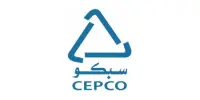
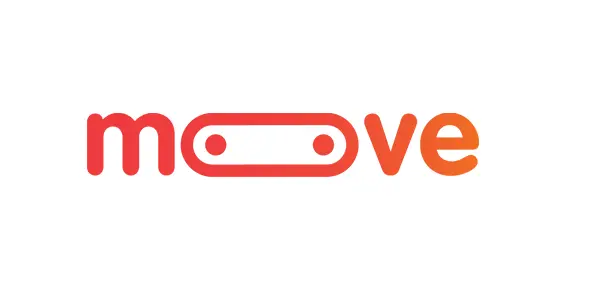
Conclusion
Sick leave in Singapore is not about Singapore only; it is also about the provision of a respectful and law-responsible environment. Psychologically loyal, productive and motivated employees are employees who feel supported that they are sick. Law-abiding employers that act reasonably in cases of sick leave would not face fines; they would also increase morale and create a healthier culture. Companies can become leaders in 2025 by knowing regulations, applying adequate technology, and being humane.
FAQ'S ( Frequently Asked Questions)
Outpatient sick leave entitled to employees is up to 14 days per year in addition to which there is 60 days of hospitalisation leave (14 days and 60 days total).
Employers may accept the MC if the delay is reasonable. However, employees are encouraged to submit within 24 hours to ensure entitlement.
No. Dismissal based solely on valid, certified sick leave is considered unfair and may violate MOM regulations.
Yes. Many companies now accept e-MCs, provided they are issued by registered Singapore practitioners and are securely submitted.


















